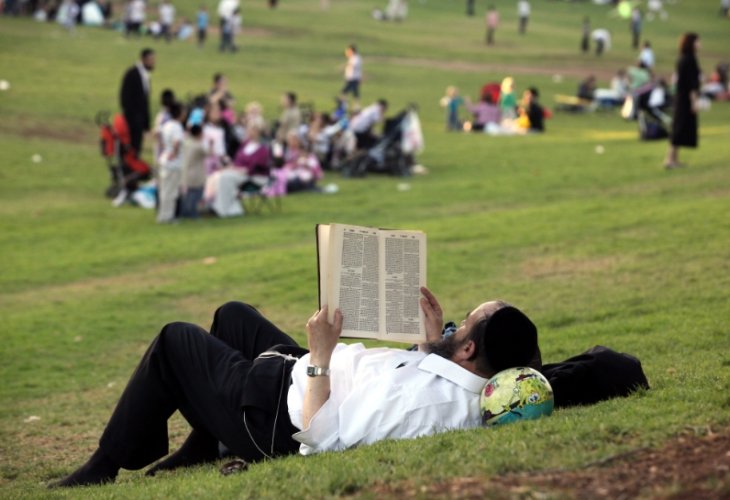Personal Stories
Every Minute Counts: The Incredible Reward of Torah Study
Even a short moment of Torah study during a break can bring immense spiritual merit and protect the Jewish people.
 (Illustration photo: Yossi Zamir / Flash 90)
(Illustration photo: Yossi Zamir / Flash 90)The beloved speaker, Rabbi Yaakov Galinsky, once shared a story that he heard from a man who had learned in the Radin Yeshiva under the great Torah scholar, the Chafetz Chaim.
“Every year, at the beginning of the month of Elul,” the man told Rabbi Galinsky, “the Chafetz Chaim would give a sermon that lasted only three minutes.” This student, who had heard the sermon himself, made Rabbi Galinsky an offer: “I’ll repeat the speech for you. I’ll say it just like the Chafetz Chaim, with his voice and hand motions. Look at me and picture the Chafetz Chaim standing before you.”
Rabbi Galinsky smiled and said to his audience, “And now I’ll say the same to you, listen and imagine I’m the Chafetz Chaim speaking to you.”
He began with a background: “In Poland and Russia, etrogim (the citron fruit used for the mitzvah of the Four Species during Sukkot) didn’t grow. They had to be brought in from warmer countries, and the journey was long and difficult. Many etrogim arrived damaged and unfit for use. The few that remained in good condition were incredibly expensive between five and fifty rubles, which in today’s money would be worth thousands, even tens of thousands of shekels. Only the very wealthy could afford one for themselves, and most communities had to buy one from their communal funds to share among everyone.”
Then Rabbi Galinsky repeated the Chafetz Chaim’s words from the brief sermon:
“We’re in the month of Elul, and the High Holidays are around the corner. Everyone is thinking, ‘Ah, if only I were rich! Then I would buy myself an etrog and lulav, the Four Species. And if I were very wealthy, I’d get the most beautiful etrog for fifty rubles. It’s worth it, just to do the mitzvah (commandment) in the most beautiful way, once, on the first day of Sukkot, which is a Torah obligation. The other days are from the rabbis, to remind us of the Beit HaMikdash (Holy Temple).’
“But,” the Chafetz Chaim continued, “a single word of Torah study brings a reward greater than the most beautiful etrog… greater than all four species… greater than the shofar, the matzah, and even all 613 mitzvot (commandments) combined!”
“And in just one minute, a person can say 200 words of Torah. In five minutes that’s a thousand words. That’s like 613,000 mitzvot in a matter of minutes! And people show up five minutes late to a shiur (Torah lesson)?!”
The Chafetz Chaim ended his short talk with a heartfelt cry.
“And that short sermon,” the Radin student told Rabbi Galinsky, “stirred our hearts deeply.”
Let us also remember the heartfelt words from our own generation’s leaders, Rabbi Gershon Edelstein and Rabbi Chaim Kanievsky. Just before the bein hazmanim break (a short vacation period between yeshiva semesters) in 2021, they sent out a powerful message.
“As the days of bein hazmanim approach,” they wrote, “we must remember the words of our Sages (Pirkei Avot 3:5): ‘Whoever accepts upon himself the yoke of Torah, the yoke of government and worldly concerns will be removed from him.’”
The rabbis warned that the Jewish people were facing spiritual challenges that could threaten the foundation of Torah in the Land of Israel. And without Torah, who knows what might happen?
“When there are fewer people learning Torah, the merit protecting all of Israel weakens,” they wrote. “The only way to hold off harsh decrees is through steady commitment to Torah and no breaks, not even during bein hazmanim.”
Their practical advice? “Everyone should set a fixed Torah study schedule, in a set place, at a set time. Study fixed topics. Try to learn with a chavruta (study partner) for at least part of the day, to help stay connected to Torah during vacation time.”

